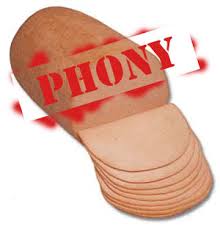sales weaknesses
-
The 21-Day Solution for the Toughest Sales Weaknesses
- April 5, 2019
- Posted by: Dave Kurlan
- Category: Understanding the Sales Force

I wrote a popular article called, How the Rubber Band Sabotages Sales Performance. That article discussed six competencies specific to Sales DNA and the impact those six have on performance when they appear as weaknesses. At the end of last week’s article, I promised to introduce a solution to you within a week and true to my promise, the solution follows.
-
How the Rubber Band Sabotages Sales Performance
- April 1, 2019
- Posted by: Dave Kurlan
- Category: Understanding the Sales Force

I have written many articles about Sales DNA, the combination of strengths that support sales process, sales strategy and sales tactics; or, when it appears as a weakness and sabotages ones ability to execute.
Unlike strategies and tactics, where you can learn and apply them, improving your Sales DNA requires much more effort and time.
-
Whiplash on the Sales Force
- May 26, 2015
- Posted by: Dave Kurlan
- Category: Understanding the Sales Force

In many cases, difficult prospects are actually easier to sell because there isn’t a whole lot of competition. Most salespeople give up or lose the prospect’s respect before they get remotely close to doing any business with them.
-
The Phony Baloney Sales Superstar
- April 20, 2015
- Posted by: Dave Kurlan
- Category: Understanding the Sales Force

I was in the car when the call was forwarded to my cell phone. I didn’t recognize the caller and his first statement was, “I have some questions about Objective Management Group (OMG).” Very Dry. Very Abrasive.
I was thinking detective, maybe researcher. I asked, “What kind of questions?” Keep in mind that he hadn’t said hello, introduced himself, or explained why he was calling so I was wondering what this was about.
He said, “I took one of your assessments and it prevented me from getting a job. Is this based on the Myers-Briggs?”
I calmly explained that Myers-Briggs was a personality assessment that reported on 16 dimensions of personality but the OMG assessment he took was sales specific and looked at 21 Sales Core Competencies.
He told me he had problems with the Myers-Briggs preventing him from getting a job once before so it must be based on that. He repeated that it prevented him from getting this job so I asked what led him to that conclusion. His answers will blow your mind!
-
Why There is No Value When You Provide Value Via Special Pricing
- September 29, 2014
- Posted by: Dave Kurlan
- Category: Understanding the Sales Force

I was discussing the OMG Partnership opportunity with a gentlemen from Hong Kong, who objected to our reasonable licensing fees, refusing to pay any fees to a US company. This is when the conversation began to resemble a sales call. He did what a lot of buyers do to salespeople and began to boast about how well-positioned his company is to market OMG in Hong Kong and what a huge opportunity this would be for OMG. He expected me to waive the fees in exchange for the great opportunity he described.
Most salespeople – 74% to be exact – not wishing to jeopardize a great opportunity, start negotiating or worse, agreeing, to the unrealistic requests. There are ripple effects to this, for example:
-
This is How Sales Managers Should Coach Their Salespeople
- March 13, 2013
- Posted by: Dave Kurlan
- Category: Understanding the Sales Force
A salesperson told me he met with a customer that had taken their business to a competitor because of price. It sounded like they were getting what they were paying for:
-
Getting Reluctant Salespeople to Fill Their Empty Pipelines
- June 25, 2012
- Posted by: Dave Kurlan
- Category: Understanding the Sales Force
Last week, I wrote this article about the best time to ask salespeople to fill their pipelines. One reader asked how to get salespeople to fill their pipelines.
It’s an interesting question because your real performers don’t have to be asked. They will keep it filled on their own. If you are having difficulty getting salespeople to fill their pipeline, then one of several things may be true:
-
You Can Help Salespeople Burdened with Sales Weaknesses
- January 23, 2012
- Posted by: Dave Kurlan
- Category: Understanding the Sales Force

Sadly, most sales training and sales trainers are unable to help salespeople overcome these weaknesses because their focus is primarily the sales skills and methodology that they teach. That puts tremendous pressure on sales managers who are simply not equipped to help salespeople overcome things like:
-
Salespeople Become More Effective Part 2
- September 10, 2010
- Posted by: Dave Kurlan
- Category: Understanding the Sales Force
Yesterday’s article discussed the possibility for salespeople to develop weaknesses AFTER being assessed and during the period of comprehensive sales training, coaching and development. Today, we’ll discuss some of the areas where you should see fairly early improvement, as well as the areas where you need to see it but may not.
-
Sales and Selling – Which Has Evolved More?
- January 19, 2010
- Posted by: Dave Kurlan
- Category: Understanding the Sales Force
Let’s compare the evolution of selling to the evolution of salespeople.
Which do you think has evolved more? After all, both have been around since there has been anything to sell.
- 1
- 2

